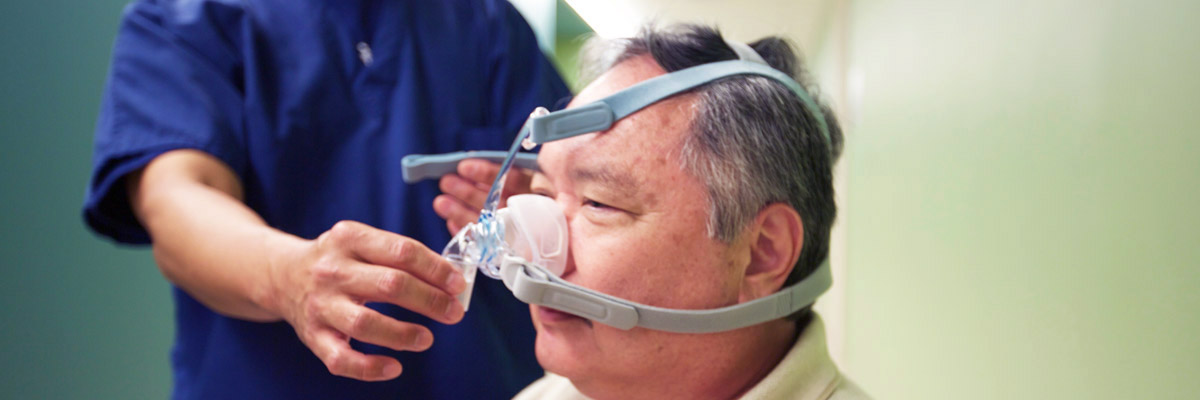Getting Adjusted to Continuous Positive Airway Pressure
It takes time to get adjusted to your CPAP. Here are some tips that might help.
- It’s important to wear your mask every night. Try to relax. Take slow, deep breaths through your nose with your mouth closed.
- Make sure your mask and headgear are not on too tight.
Air pressure discomfort
- Use the “ramp” feature on the CPAP machine which starts at a low pressure, then slowly rises to the prescribed level, giving you time to fall asleep.
- Sleep with your head elevated or sleep on your side.
- Ask your doctor if:
- you can try a bilevel or autoCPAP machine
- pressures seem higher or lower than usual
Eye discomfort
- Reapply your mask and adjust your headgear to stop air leaks from the mask.
- Try saline eye drops or wear an eye mask.
- Ask your doctor if you can replace your mask with nasal pillows or a different mask.
Machine seems too loud
- Try a longer hose so the machine can be placed on the floor, under the bed, or in the closet.
- Wear ear plugs.
- Ask your doctor if you can try a different CPAP machine.
Mask discomfort
- Keep in mind that it may take some time to get adjusted to using the mask and machine.
- Ask your doctor if you can:
- change to nasal pillows
- use a different type of mask if you have skin irritation
Mouth dryness
Ask your doctor about a:
- chin strap to keep your mouth closed while sleeping
- full face mask that covers your mouth and nose
- heated humidifier for your mask, or increase the humidification level if you already have a humidifier
Nasal discomfort
- Try an over-the-counter saline nasal spray.
- Ask your doctor about prescribing:
- a nasal steroid spray
- an antihistamine
- a heated humidifier for your mask
- a full face mask or a different mask
For all other problems or questions
- Contact your doctor.
- Contact Apria Healthcare at (808) 485-0178 or your CPAP mask/machine supplier.
Important: Changes in CPAP masks and machines require a doctor’s prescription.
** This information is not intended to diagnose health problems or to take the place of medical advice or care you receive from your physician or other health care professional. If you have persistent health problems, or if you have additional questions, please consult your doctor.
